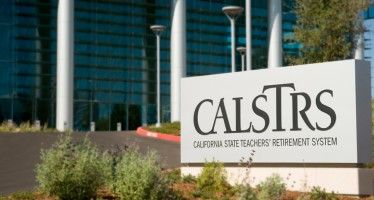Cupertino project may test power of ballyhooed housing law SB35

Senate Bill 35 – the 2017 measure authored by state Sen. Scott Weiner, D-San Francisco, that was billed as the most far-reaching response to California’s housing crisis – could be about to get its first major test in Silicon Valley, the region with the state’s most severe problem with extreme housing costs.
Under the law, cities that have failed to build enough housing to honor their obligations under state law to respond to public needs must approve properly zoned housing projects that meet certain conditions, such as having 10 percent “affordable housing” units and paying union-scale construction wages. State housing officials reported in February that nearly 98 percent of cities would be affected in some ways by SB35’s requirement that housing be fast-tracked.
Weiner’s bill was hailed by many activists, housing experts and think tanks as a potential “game changer” that could address California’s emergence as the state with the nation’s highest effective poverty rate because of the high cost of shelter. But many local elected officials have reacted with anger and dismay to their apparent loss of control over construction permitting, with a Brown administration housing official taking withering fire at a meeting with city leaders in San Diego County in early March.
Now the question of how much say local authorities still have over housing in the SB35 era is about to be addressed in Cupertino.
Voters rejected 800 housing units; now far more may be built
Last Tuesday, officials with the Sand Hill Property Co. announced that they will seek to use provisions of Weiner’s law to compel Cupertino officials to allow their company to build more than 2,400 homes on a lot that now holds the Vallco Mall. Opened in 1976, the mall – shown above in a 2017 photo – was once a vibrant commercial hub, with nearly 200 tenants. Now it has fewer than a half-dozen.
Sand Hill had proposed a multi-use project at the mall site, but Cupertino voters in 2016 rejected the plan out of fears that its housing component of up to 800 units would strain local schools and roads. Now the company wants far more housing, especially less expensive options. Its plan calls for about 1,200 of the proposed residential units to be “affordable housing” – meaning they would be set aside for families making about $85,000 or less a year. A San Jose Mercury-News analysis said this single project “would increase Cupertino’s affordable housing stock fivefold.”
“It has now gotten to a point where we do not have any confidence that this process can come to a conclusion in a timely manner,” Reed Moulds, managing director of Sand Hill, told the Mercury-News. “This housing crisis needs to be resolved in a manner that actually provides near-term solutions, and sites like this have an opportunity to do a lot of good for the housing situation.”
The project also would include 2.2 million square feet of office and retail space.
But SB35 or not, local activists are gearing up to try to persuade Sand Hill to sharply downsize the project. The Better Cupertino group has fought development of the Vallco Mall site for years. Its website bristles at attempts to limit local control of planning and even challenges the widely held view that suburban malls such as Vallco are doomed, given the steady growth in online shopping.
But the tone, at least, of city officials seems to reflect an assumption that times have changed. Cupertino Councilman Barry Chang told the Mercury-News that he didn’t see how his city could reject the application, at least if it met the standards set out by SB35.
Cupertino, home to Apple’s headquarters, has a median home price of $2.3 million as of late February, according to data from the Zillow real-estate information company. Zillow said home values have soared by more than 25 percent in the last year alone. The Rent Jungle website said that as of February, the average monthly rent of an apartment in Cupertino was $3,114.
Chris Reed
Chris Reed is a regular contributor to Cal Watchdog. Reed is an editorial writer for U-T San Diego. Before joining the U-T in July 2005, he was the opinion-page columns editor and wrote the featured weekly Unspin column for The Orange County Register. Reed was on the national board of the Association of Opinion Page Editors from 2003-2005. From 2000 to 2005, Reed made more than 100 appearances as a featured news analyst on Los Angeles-area National Public Radio affiliate KPCC-FM. From 1990 to 1998, Reed was an editor, metro columnist and film critic at the Inland Valley Daily Bulletin in Ontario. Reed has a political science degree from the University of Hawaii (Hilo campus), where he edited the student newspaper, the Vulcan News, his senior year. He is on Twitter: @chrisreed99.
Related Articles
Does Jerry Brown Break Campaign Law?
Sacramento talk radio host Eric Hogue discovered this very interesting audio and video of Jerry Brown meeting with Labor International
Credit rating agencies concerned about California pensions costs
A new Public Policy Institute of California poll shows the number of state residents worried about the cost of government
Why Prop. 13 is more crucial than ever
Every year brings attempts to gut Proposition 13, the 1978 tax limitation measure. It limits yearly increases in property taxes




